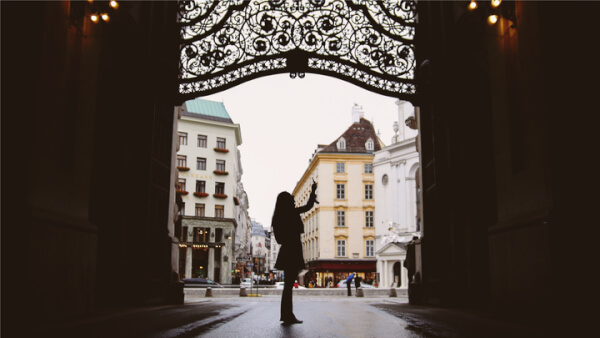Bank and public holidays in Austria: 2017-2018 guide
The Austrian holiday calendar might look a little different to those who aren’t from the country. In Austria, religious holidays are taken very seriously,...

Seekers of a more relaxed way of life have been making their way to Austria for decades. The small, central European country is known for extended summer vacations, long lunch breaks, short work days and a generalized lack of rush that's attracted many an expat through the years.
For those dreaming of spending the warmer months swimming in the country’s beautiful lakes or hiking its lush hills, making your living situation in Austria a little more permanent may seem appealing. While the country as a whole isn’t well known for a particularly low cost of living, it can still be affordable to rent an apartment, whether in a big city or small town, for many foreigners. In fact, the average cost of a furnished accommodation in one of Austria’s major cities - like Vienna, Innsbruck, or Salzburg - is just €1,382 per month, a major break considering prices of other European cities like London or Paris.
On top of relatively low rent prices, Austrians also enjoy some of the most inexpensive fresh and organic foods in the world, and it’s not uncommon for your farmer’s name to be included on your package of eggs or carton of milk. Getting around is also cost effective (and healthy), as the main form of transport in most Austrian cities is by bicycle. And, if biking isn’t for you, public transportation is reasonably priced, too. An unlimited monthly transport pass will run you around €47.
Whether you’re considering moving to Austria to get a job, start a company, or just to enjoy the slow and decadent lifestyle, finding an apartment can be one of the biggest hurdles. This guide will walk you through some of the most important things to know about renting in Austria.
Renting an apartment in Austria is a fairly straightforward process, as most rental properties are handled by real estate agents. While this can tack on some fees to your apartment search, it means you’ll have an expert to guide you to the best neighborhoods and find you a good deal within your budget, instead of going at it alone.
That being said, it's legal throughout Austria to sublet an already-leased room, and often those types of listings don’t go through brokers. Because leases in Austria are typically long term - three years, on average - it’s not uncommon to find an apartment with one to two years left on its lease in which you can strike a deal directly with the current renter. In these cases, you may even be able to score some temporary furniture while you’re at it.
If you decide to pursue a sublet, the best place to start is online. Sublet.com or Willhaben, for instance, have listings posted for most of Austria’s major cities and many smaller towns in between. It’s also a good idea to check popular short-term rental sites, like Airbnb, where it’s possible to snag an apartment for a year or more on a continuous rental.
If you’re subletting, you usually won’t need to worry about signing a wohnung mieten, or apartment lease. It’s a good idea, however, to understand the basic terminology that distinguishes your own apartment versus a shared apartment, community, or condo.
While an apartment or flat is translated simply to die wohnung, an apartment that's shared with roommates is referred to as die wohngemeinschaft. On the other hand, a studio apartment is often called das atelier, though it could be called das apartment, an important and confusing distinction. It’s also a good idea to remember the word for a condo - die wohngemeinschaft - so you don’t end up accidentally touring apartments for sale, versus those for rent. If you’re going the sublet route, you’ll also want to be using the terms provisionsfrei (without commission) and keine makler (no brokers) in your online search. Other important terms include:
When you’re on your apartment hunt, you’ll notice that almost every room you see is empty. It’s very uncommon to find a furnished apartment in Austria, even in sublet situations. Make sure to weave a trip to Ikea into your budget!
While it’s not common to negotiate with a landlord in Austria, the common attitude is “it doesn’t hurt to try.” Usually, if you’re working with a real estate agent you can attempt to have them handle some level of negotiation for you. That being said, the rental market in Austria is extremely strong, with 40% of people living in the country renting vs. buying. With that in mind, you may find that many landlords are unwilling to budge, as there are usually plenty of other potential renters lining up for the best apartments.
While it’s technically possible to secure an apartment without a job, it would be highly unusual. Almost any landlord will ask to see proof of income, and smart subletters will ask for the same. This can be a job anywhere, however tenants working in Austria with an Austrian work visa are often preferred.
Sometimes in apartment sharing situations in which one roommate is considered the “tenant” and the rest are subletters, you’ll be able to slip through the cracks without proving you have a job.
Tenants rights are notoriously complex around the world, though in short terms it’s safe to assume that tenant law in Austria follows roughly the same rules as renting in other EU countries, the UK, the U.S. and Canada. Tenants are required to sign a lease, and both the tenant and the landlord are bound by that document except in extenuating circumstances.
For instance, if you choose to move out of your apartment before your lease is up, you’ll need to first consult the “notice clause” in your lease. Usually you’ll be required to notify your landlord in writing three months before your intended move out date if you’re leaving early. If no such clause is written into your agreement, you may need to go through the court in order to serve your landlord an official judicial notice of your intent to vacate.
Conversely, your landlord can’t kick you out without reason, but they may terminate your lease under extenuating circumstances. There are typically only two ways this can happen.
Otherwise, the exact rules in your apartment and building will come down to your individual rental agreement. It’s a good idea to read these thoroughly. While they're often fairly standard, it’s your responsibility to ensure you’re not getting a bad deal. Once you have your lease in hand, you can, however, consult with the institution which handles property in Austria, die mietervereinigung. This example agreement for subleases will give you a good idea of what you might find in your own contract.
Other than your lease and rent, you’ll also be required to pay a deposit. This is refunded to you when you move out, assuming the property is in the same condition it was when you rented it. If not, the cost of repairs will come from your deposit. The amount of the deposit is usually the same amount as your monthly rent. However this figure is variable and can range from half a month’s rent to two months rent. When you move out, you may also be able to get an ablöse payment. The ablöse can be seen as what the landlord owes you for non-removable improvements to the apartment, like if you had the floors replaced or installed new appliances.
Another cost to consider is rental insurance, which protects you from theft and loss of property. Many landlords will require you to take this insurance out upon move in. You’ll also be responsible for your own utilities and non-rent bills, like water, gas, and Internet.
Renting only requires a signed lease and proof of identity. However, landlords have the right to ask for proof of employment, your visa, or references (in German).
As with renting any apartment, it’s a good idea to ask a lot of questions before you commit to a place. Some key questions you may want to pose to your new landlord include:
Beyond questions for your landlord, it’s also a good idea to do some general investigation. In Austria, it's your landlord’s responsibility to ensure your apartment is free of pests. When you do your apartment tour, check the kitchen cabinets for bugs or signs of mice, like feces. It’s also a good idea to chat with your neighbors, if they’re available. They already know how your landlord operates, or whether there are any problems in the building. Lastly, take photos. Your deposit can be pretty steep, especially in places like Innsbruck or Vienna, so you want to make sure you’re protecting it. Taking photos of every single tiny flaw that exists when you move in will help if your landlord decides to count them against you when your lease is up.
Most rent in Austria is paid online. However, it’s unusual for landlords to accept payments from foreign bank accounts. As such, it’s a good idea to keep your Austrian bank account full of enough funds to pay your monthly rent. If you’re going to be funding that account from your overseas bank account, you can avoid the hefty international transfer fees and historically poor exchange rates given by banks by using a service like Wise, who also send out your money from a local EU bank account. If your landlord asks you to pay your rent in cash, you may want to choose a different apartment. In the event of a dispute, it’s hard to prove payment when there’s no digital footprint.
If you’re looking to rent a place in Austria, these sites are a good place to start:
The best possible way to ensure you’re not scammed is by being present, touring the apartment, meeting the landlord, reading the proposed lease and talking to neighbors. That being said, when you’re trying to secure an apartment from abroad it’s not always possible to take those measures; and that can be scary!
While scams are constantly changing and it’s impossible to list all of the ways thieves may try to get more money from you, there are a few things that are a generally good idea to look out for:
If your potential new landlord is asking for your full name, current address, passport number, and/or any additional information before you’re at the lease signing stage, be wary. Some “fake” landlords simply mine your personal data, and then use it to steal your identity and subsequently, your money.
While it’s not uncommon for your security deposit to be up to 2x monthly rent, any more than that should raise major red flags. This is a sign of someone trying to extract as much money as possible from you, and can be indicative of a landlord who won't be giving that deposit back at the end of your lease (if they really are the landlord at all).
When you’re searching for an apartment in a crowded market, it may not seem totally unreasonable to fork over some cash just to go see a place. However, viewings should be free, and if the landlord or agent is asking for money just to let you in, you should walk away.
With that, you’re ready to start your apartment hunt. Good luck!
*Please see terms of use and product availability for your region or visit Wise fees and pricing for the most up to date pricing and fee information.
This publication is provided for general information purposes and does not constitute legal, tax or other professional advice from Wise Payments Limited or its subsidiaries and its affiliates, and it is not intended as a substitute for obtaining advice from a financial advisor or any other professional.
We make no representations, warranties or guarantees, whether expressed or implied, that the content in the publication is accurate, complete or up to date.

The Austrian holiday calendar might look a little different to those who aren’t from the country. In Austria, religious holidays are taken very seriously,...

Voted most livable city in the world an amazing seven times in a row, Vienna is a popular place with locals and foreigners alike. Here you can find a...

When you think of Vienna, it might stir up images of good coffee, crime-free streets and beautiful historic buildings - but did you know global consulting...

As one of the richest countries in the European Union, Austria is a popular place for expats to live and work. Vienna, in particular, is well connected with a...